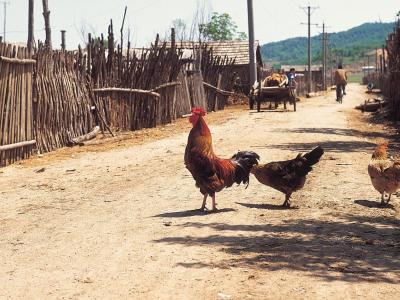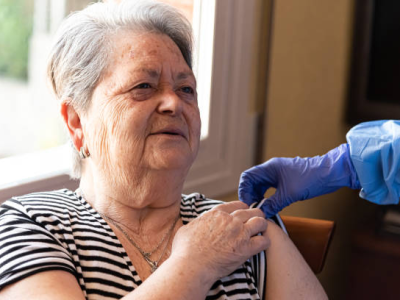Our weekly wrap-up of antimicrobial stewardship & antimicrobial resistance scans
CARB-X to fund development of vaccine for resistant infections
Originally published by CIDRAP News Jul 7
CARB-X announced today that it is awarding $892,000 to Spanish biotechnology company Vaxdyn to develop a vaccine to prevent infections caused by multidrug-resistant bacterial pathogens.
The money will help Vaxdyn, of Seville, Spain, develop KapaVax, a multiple-antigen vaccine based on detoxified bacterial cells that could be used to prevent infections, including pneumonia, in multiple at-risk populations. KapaVax specifically targets infections caused by Acinetobacter baumannii, Klebsiella pneumoniae, and Pseudomonas aeruginosa.
Vaxdyn will receive an additional $6.36 million from CARB-X (the Combating Antibiotic-Resistant Bacteria Biopharmaceutical Accelerator) if certain project milestones are met.
"The threat of drug-resistance underscores the importance of vaccines as powerful weapons to prevent disease as well as the spread of deadly bacteria," CARB-X chief of research and development Erin Duffy, PhD, said in a press release. "The Vaxdyn project is in the early phases of development, but if successful and approved for use in patients, it could prevent drug-resistant pneumonia in patients with elevated risk, for example those with chronic lung disease or diabetes, or patients undergoing cancer treatment."
Since its launch in 2016, CARB-X has awarded more than $240 million to accelerate the development of 66 antibacterial products. This is the fourth vaccine in the CARB-X portfolio.
Jul 7 CARB-X press release
WHO, Pew Charitable Trusts call for efforts to boost antibiotic development
Originally published by CIDRAP News Jul 7
The World Health Organization (WHO) and the Pew Charitable Trusts today issued a call to action on antibiotic development.
Citing the dearth of new and novel antibiotic candidates, increased global drug resistance, and the financial challenges of developing new antibiotics, the groups urged policymakers, pharmaceutical companies, research funders, and other antibiotic innovation stakeholders to take action to "stabilize and revitalize" the broken antibiotic development pipeline and market. With many of the antibiotics we are currently using losing their efficacy, they said, novel antibiotics are urgently needed.
The letter follows separate reports released earlier this year by both groups that came to similar conclusions about the state of the antibiotic development pipeline. Both found that it is insufficient, with too many candidates that offer little benefit over current antibiotics and not enough innovative drugs that target the most critical drug-resistant pathogens. Both reports cited low sales volume and poor market conditions as significant hurdles that have led many major pharmaceutical companies to abandon antibiotic development and left many small companies struggling financially.
Their three specific requests include increased funding for early-stage research, more push and pull incentives to help successfully move antibiotics through clinical development, and different reimbursement models to help provide sufficient return on investment for new antibiotics. These efforts must be robust and sustained, they said.
"COVID-19 has so poignantly reminded us that we need to build more resilient health systems that include access to effective antibiotics to better tackle future outbreaks," the groups wrote. "Antibiotic resistance is a looming public health crisis also requiring improved preparedness, including a robust clinical antibacterial development pipeline."
Jul 7 WHO/Pew Charitable Trusts letter
Johnson & Johnson drops price of bedaquiline for lower-resource nations
Originally published by CIDRAP News Jul 6
The Stop TB Partnership and drug maker Johnson & Johnson today announced a price reduction for the drug-resistant tuberculosis (DR-TB) drug bedaquiline to make the drug more affordable in low- and middle-income countries.
Effective immediately, Johnson & Johnson will make bedaquiline available through Stop TB Partnership's Global Drug Facility (GDF) at a price of $340 per 6-month treatment in 135 countries, down from the original price of $400. The effort to scale up use of the oral drug, which is recommended as part of the first-line all-oral treatment for drug-resistant forms of TB by the WHO in TB-affected countries, is being supported by the US Agency for International Development (USAID) and the Global Fund to Fight AIDS, TB and Malaria.
"In a world filled with worrying news, this new agreement is a welcome development and one that will move us closer to the United Nations High-Level meeting target of treating 1.5 million people with DR-TB by 2022," Lucica Ditu, MD, Executive Director of the Stop TB Partnership, said in a joint press release.
The WHO added bedaquiline to the preferred treatment regimen for DR-TB in 2018, with the hope that the revised, all-oral regimen could improve treatment outcomes and quality of life in patients. The previous regimen included injectable drugs, which had notable side effects.
Médecins Sans Frontières (MSF), which has been pushing Johnson & Johnson to lower the price of bedaquiline since it was approved in 2012, said that while the price reduction is an important step, the drug needs to be even cheaper and needs to be made available at the lower price to countries that do not buy it through the GDF. The price cut drops the price to $1.50 a day, but MSF has called for the price to be cut to $1 a day.
"J&J received public investments in the hundreds of millions of dollars, including grants from the US government and various financial incentives, and treatment providers like MSF contributed to the research on the drug," Sharonann Lynch, Senior HIV and TB Advisor for MSF's Access Campaign, said in an MSF press release. "J&J should not be charging high prices for this drug anywhere."
MSF also urged countries to scale up the use of bedaquiline for DR-TB treatment.
Jul 6 Stop TB Partnership press release
Jul 6 MSF press release










